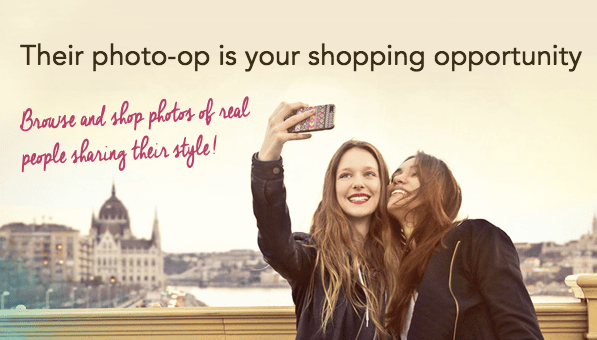Last chance to save on Digiday Publishing Summit passes is February 9

Love shopping and sharing selfies in your new outfits, but wish you’d get a few more likes? You guessed it: There’s an app for that. “Stylinity” connects retailers with their customers, letting users easily share shoppable images and earn rewards for the purchases that they help influence.
With Stylinity, users scan the barcode on products that they try on, which attaches a shoppable link and product description along with any photos they share of themselves wearing the products. That way, if their friends want to buy the product, they don’t have to go scrambling to a store or scout for it online — there’s a direct link to it. It’s a win-win scenario: users earning reward points from the retailers the app partners with redeemable for cash or products.
 “It’s like an automated photo booth in the dressing room,” Tadd Spering, the app’s founder and CEO, told Digiday. “It plays on the fun part of discovery, without the tedium of having to search for products.”
“It’s like an automated photo booth in the dressing room,” Tadd Spering, the app’s founder and CEO, told Digiday. “It plays on the fun part of discovery, without the tedium of having to search for products.”
According to Spering, the app has partnerships with over 180 retailers — from Nordstorm to Urban Outfitters — and caters largely to women in the 18-34 age range. It not only lets users store their images in a “closet” and reap the benefits of being brand evangelists, but also enables retailers to get word-of-mouth publicity as well as provide a better customer experience for its customers.
U.K.-based fast fashion e-retailer Boohoo partnered with Stylinity last October, when it opened a pop-up store in New York City. Stylinity helped the brand generate considerable buzz among its target audience in what was its first step to expand outside of the U.K.
“It’s really easy and adds an extra element of experience,” Kelly Byrne, Boohoo’s international marketing manager, told Digiday. “It drives the customer back to the online store from the physical store.”
Shoppable images have been promising to revolutionize e-commerce lately, without quite fully delivering yet. They help brands monetize their large social followings go from merely “liking” pictures on social platforms, to actually making a purchase. Companies like Curalate, for example, help brands use their profile links to direct visitors from pictures on social media directly to their retail websites.
“Stylinity is different because a selfie is authentic, user-generated content,” Spering said. “It doesn’t repel customers and makes brands more real.”
More in Marketing

‘Our marketing is not a bullshit machine’: Why Perplexity is investing in targeted, organic growth
Perplexity is banking on its name carrying weight to keep current users engaged and attract new ones

As AI catches on across luxury, brands play up their emotional value
At Shoptalk Luxe, vendors and brands alike described deeper AI integration than ever before.

Future of Marketing Briefing: Advertising’s tracking system meets a new political reality
The privacy debate in advertising is entering a phase when decisions will stick.





